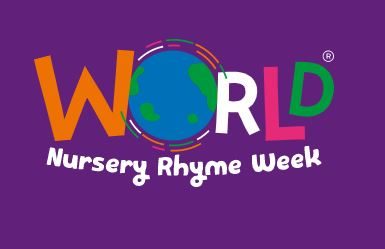This week is World Nursery Rhyme Week. We are celebrating it by launching a focus on the awareness of rhyme throughout the nursery and would love parents to get involved in this too.
At Milngavie EYC we work in partnership with parents to support children’s learning and development. Last session we enjoyed a variety of Family Learning workshops and parents frequently visited the centre to be actively involved in nursery life. As we are unable to invite parents to participate in our activities in the centre at the moment we will deliver our family learning activities via the blog look out for our Family Learning – Parents as Partners in Learning posts.
Nursery rhymes are taken very seriously in nursery. They can provide so many different contexts for learning, and educational research has shown that learning rhymes is extremely beneficial for language development.
“Experts in literacy and child development have discovered that if children know eight nursery rhymes by heart by the time they’re four years old, they’re usually among the best readers by the time they’re eight. -“
Mem Fox, Reading Magic.
Nursery rhymes provide bite-sized learning opportunities for young children to develop key developmental skills and can often be the trigger for hours of creative and open-ended play. They are a powerful learning source in early literacy and enable children to become interested in the rhythm and patterns of language. Consider the alliteration in “A Sailor Went to Sea Sea Sea”, or the onomatopoeia in “Baa Baa Black Sheep?”and rhyme in “Twinkle Twinkle Little Star”. Many nursery rhymes are also repetitive which can support the development of memory and provide great opportunities for practising
listening and speaking.
Nursery rhymes provide other key benefits such as:
Communication and Language Development
Rhymes are fantastic vocabulary boosters. They often feature a pleasing rhythmic pattern and simple repetitive phrases that babies and young children find easy to remember and repeat. In order to develop their phonological awareness, children need to be repeatedly exposed to spoken language and nursery rhymes provide the perfect way to do this.
Physical Development
The opportunity to ‘act out’ a favourite rhyme will be a welcome activity for active minds and fidgety bodies. Physical participation in action songs encourage children to develop their fine and gross motor control skills as well as balance, coordination and the skills needed to follow simple instructions.
Numeracy
Counting songs (e.g Five Currant Buns) help to develop a familiarity with number sounds and words in a way that is fun and interesting to a young child. Songs such as “When Goldilocks Went To The House Of The Bears”also introduce the concept of scale, size and order. Familiarity with counting songs provides the foundation for crucial numeracy skills and awareness.
Understanding the World
Children can often relate nursery rhymes to their own everyday experiences and will enjoy sharing their knowledge about ducks or boats after rhyme sessions with 5 Little Ducks or Row, Row, Row Your Boat. Some of the older nursery rhymes (i.e. Jack and Jill, Wee Willie Winkie etc) allow us to look at how life was in the “Olden Days” and widen children’s vocabulary. Humpty Dumpty introduces the concept of gravity as well as the need for care if sitting on a wall. The wide amount of topics featured in nursery rhymes helps us explore a vast amount of different topics.
Creativity
The act of singing a rhyme or engaging with it physically, encourages children to express themselves in a creative way and to find their own personal ‘voice’. Role play opportunities present themselves with different characters and events within the rhyme that children can respond to either individually, or as a group. Open-ended play opportunities are also possible
with paints, clay, wet sand or loose parts.
This term we are going to introduce “A Rhyme a Week”. Each week we will focus on a rhyme and provide lots of opportunities to learn the rhyme and investigate the meaning within it, with lots of activities relating to the rhyme available in our play areas.
If you could help your child practise the rhyme as part of their bedtime story time, or by watching a youtube video of it, this would really make the rhyme much more memorable. The World Nursery Rhyme Week website also has lots of fun activities to try and videos to watch. https://www.worldnurseryrhymeweek.com/



One Comment
Leave a reply →